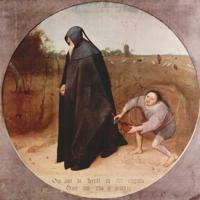
Der Schattige Wald 🇬🇱
1 150
Obunachilar
+424 soatlar
+147 kunlar
+1030 kunlar
- Kanalning o'sishi
- Post qamrovi
- ER - jalb qilish nisbati
Ma'lumot yuklanmoqda...
Obunachilar o'sish tezligi
Ma'lumot yuklanmoqda...
Repost from Actaeon Press
Photo unavailableShow in Telegram
"We have to get away from the concept of the nation as it was developed by the French Revolution."
~ Ernst Jünger
Photo unavailableShow in Telegram
"To paraphrase an observation from Bacon, one could say that to survive the world of today, one should have neither too little of the actor nor too much of the honest man.
As is his wont, Carl Schmitt closes his letter with a Bible passage, Isaiah 14:17."
~ Ernst Jünger
"Yet thou shalt be brought down to hell, to the sides of the pit. They that see thee shall narrowly look upon thee, and consider thee, saying, Is this the man that made the earth to tremble, that did shake kingdoms; That made the world as a wilderness, and destroyed the cities thereof; that opened not the house of his prisoners? All the kings of the nations, even all of them, lie in glory, every one in his own house. But thou art cast out of thy grave like an abominable branch, and as the raiment of those that are slain, thrust through with a sword, that go down to the stones of the pit; as a carcase trodden under feet."
Photo unavailableShow in Telegram
"Nihilism and anarchy. Distinguishing between the two is as difficult as differentiating between eels and snakes, but nonetheless it is essential for recognizing the game that is at stake. A relationship to order is critical here—the anarchist lacks this, but it defines the nihilist. This makes nihilism more difficult to discern; it is better disguised. A good indicator is the bond to the father: the anarchist hates him, while the nihilist despises him."
~ Ernst Jünger
Photo unavailableShow in Telegram
"At such times it is not uncommon to find a multitude represented on the world’s vast stage by a few men, just as in the theater. Those few alone speak in the name of an absent or inattentive crowd. They alone act amid universal immobility. They decide everything to suit themselves, changing laws and exerting tyrannical control over mores at will, and it is astonishing to see how few, how weak, and how unworthy are the hands into which a great people can fall."
~ Tocqueville
Photo unavailableShow in Telegram
"I do not die, for my enemy still lives."
~ Carl Schmitt
Repost from Quantus tremor est futurus - Actaeon Journal
"What a prince holds naturally, applies as imitation for the true citizen."
What Hölderlin says here is the law and right of the citizen, it is his connection to the fatherland even when the nation is under threat. The figure proves the spirit of man just as the exception proves the real life of sovereignty.
Photo unavailableShow in Telegram
"The Bible does not attribute any good things to the dog, except that he licked the sores of Lazarus. But he is also the loyal guardian and defender of his master and, often enough, the last to remain faithfully at his side."
~ Ernst Jünger
Repost from Olav Huitfeldt
This is not a return to activity, merely a short polemic I thought would benefit a larger audience.
The Nationalists say that the nation is the family writ large, some talk of "the folk" as merely the utmost extent of the kin or clan community. However, as any etymologist would know, this sense is, at least in english, barely 300 years old. Prior to that point, the folk is more often than not the common mass of people, indiscriminate and general in its usage, and nearly just as often a military term of mobilization as it is a social one. It is, appropriately so in my opinion, also directly related to the Latin word "plebes".
The actual word for family in Old English is "cynn", the direct ancestor of the contemporary word "kin", which is (probably) also related (through "cyning") to the word "king". Kingdom is in this understanding quite literally "the dominion or rule of a family". Kin (compare: Genus) is also an originally discriminatory term, whereas "folk" does not have to be, the former indicating not only ones racial stock, but also ones classhood and gender (womankind, etc). It stems from the hypothetical PIE root-word for begetting and giving birth, and has a direct connection with, among others, the german word for child "Kind".
The Folk and The Kin are different species on a conceptual level. It is good to remember the original meaning of the word "tyrant", as the servants of the same can never know the difference between childrapist and childrearer. Being a Greek could not possibly ever mean more than being an Athenian or Theban, being a German could not possibly ever mean more than being a Bavarian or Saxon, or in my own case, being a Norwegian could not possibly mean more than being a Grenlander. When one looks at the Roman Familia, the Scottish Clann, etc. the absurdity of what we can call rigid nationalism in a historical time-frame stretching past the 1400s becomes clear.
Kinship and parochiality, not nationalism and imperialism.
"One thinks victory of a cause has been won, if one only uses words which serve, so to say, as a holy symbol which nobody would dare deny lest he be looked upon as a monster, a scoffer, or a friend of tyranny. Momentary success can be won in this manner, but real victories can not be won this way, nor can real difficulties be overcome.
~ Bauer
